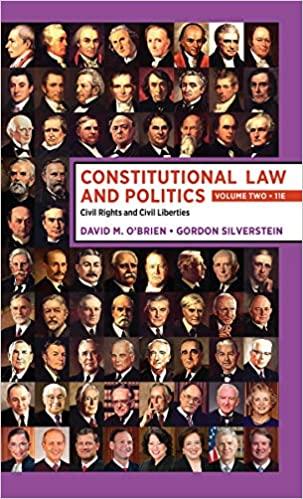Question
Case Study 5 Oil's NOT Well that did not End Well Karla De Souza, a consultant based in Calgary, Alberta, specializing in the extraction of
Case Study 5
"Oil's NOT Well that did not End Well"
Karla De Souza, a consultant based in Calgary, Alberta, specializing in the extraction of bitumen from oil sands projects, entered into a consulting agreement with a company in Argentina called Pan Argentina. Ms. De Souza moved to Santa Rosa and provided services to the company for approximately six months. She was asked by Pan Argentina to ignore local environmental laws as they related to the extraction and processing of the bitumen in Argentina. Ms. De Souza declined.
As a result, Pan Argentina terminated the agreement and refused to pay for her services rendered up to that date. Ms. De Souza commenced an action in Alberta, alleging that Pan Argentina had violated the terms of the agreement. The company moved to compel arbitration of her claim, pursuant to an arbitration clause in the agreement that excluded litigation and mandated Argentina as the proper location for arbitration.
Ms. De Souza opposed this, arguing that the arbitration policy was unfair.
The arbitration clause in the consulting agreement provided that all disputes arising out of or in connection with the contract would be finally settled by way of arbitration. The arbitration clause also required the following:
1.Each party shall propose an arbitrator.
2.The parties shall meet and negotiate in good faith with the intent to reach agreement on an arbitrator.
3.In the event that the parties are unable, through negotiation, to agree on an arbitrator, the respondent / defendant in the dispute shall choose the arbitrator.4.All costs related to the arbitration would be paid by the applicant / plaintiff.
1.In general, what are some of the advantages of arbitration as a method of dispute settlement as compared to litigation?(2)
2.Based on the decision of the Supreme Court of Canada in the case, Douez v. Facebook case, what arguments can Karla De Souza make to persuade the court not to enforce the arbitration policy? (2)
3.How do the facts of this hypothetical case differ from the Douez v. Facebook case? What might persuade the Canadian court to side with Pan Argentina to enforce the arbitration policy? (3)
Step by Step Solution
There are 3 Steps involved in it
Step: 1

Get Instant Access to Expert-Tailored Solutions
See step-by-step solutions with expert insights and AI powered tools for academic success
Step: 2

Step: 3

Ace Your Homework with AI
Get the answers you need in no time with our AI-driven, step-by-step assistance
Get Started


